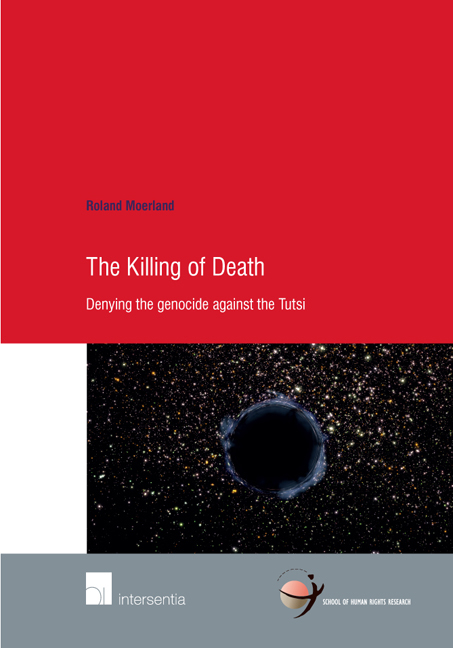Book contents
Summary
Normally, in the tradition of PhD manuscripts, the acknowledgments would feature here. I admit that it is somewhat ironic to have a manuscript about denial that does not have acknowledgments. This does not mean that I do not appreciate the help I received. I am grateful to those who participated in my research and I am indebted to those who were always willing to hear me out. I am, however, also thankful to those who did not inquire about my research and temporarily relieved me from this subject which has been dominating my life for several years now. The last remark already reveals how topical the subject of this study is. People need denial in order to lead healthy lives; it is often a normal and human reaction that is necessary to cope with the burdens of existence. However, as this study will show, denial cannot only be constructive, it can also be destructive. This is the case when denial operates in the context of genocide and serves the perpetration of that crime. My research addresses the problem of such genocide denialism and it more particularly focuses on the denial of one specific genocide, namely the genocide against the Tutsi in Rwanda. The broader aim of this study is to come to a more profound understanding of genocide denialism and how it operates in the specific case of the genocide against the Tutsi. The inquiry into these issues has resulted in an elaborate study that can be found in the 7 Chapters that follow. Although I introduce the abovementioned research topic and the approach taken in this study in Chapter 1, I think it is nonetheless important to briefly address the following aspects at the outset of this study.
It is first of all important to notice that my study does not aim to deal with the conflict in Rwanda and the Great Lakes Region in an exhaustive manner. In this study I have focussed on those elements of the conflict history that are helpful (functional) in understanding the denial of the genocide against the Tutsi. I am aware of the fact that the reality of the conflict is more complex and multifaceted than presented in this manuscript.
- Type
- Chapter
- Information
- The Killing of DeathDenying the genocide against the Tutsi Roland Moerland, pp. vii - viiiPublisher: IntersentiaPrint publication year: 2016

